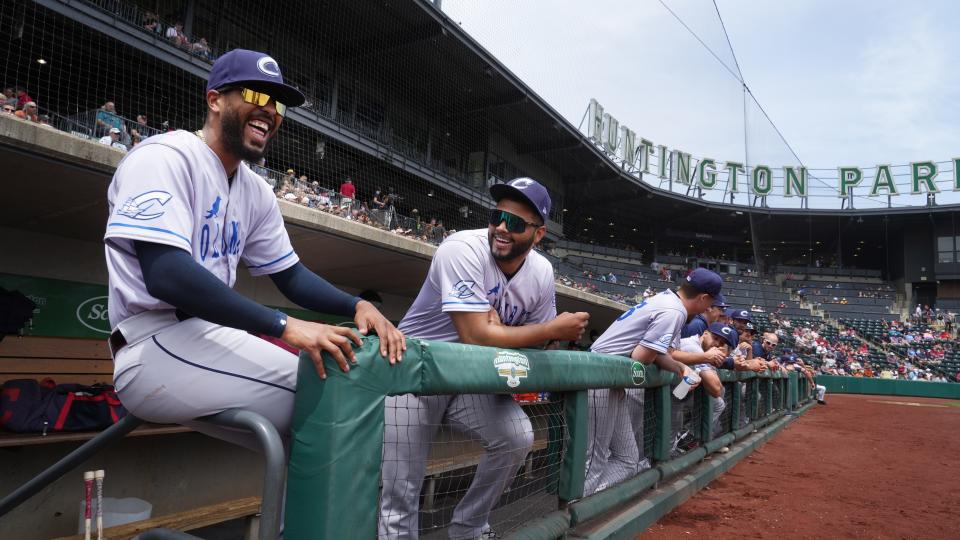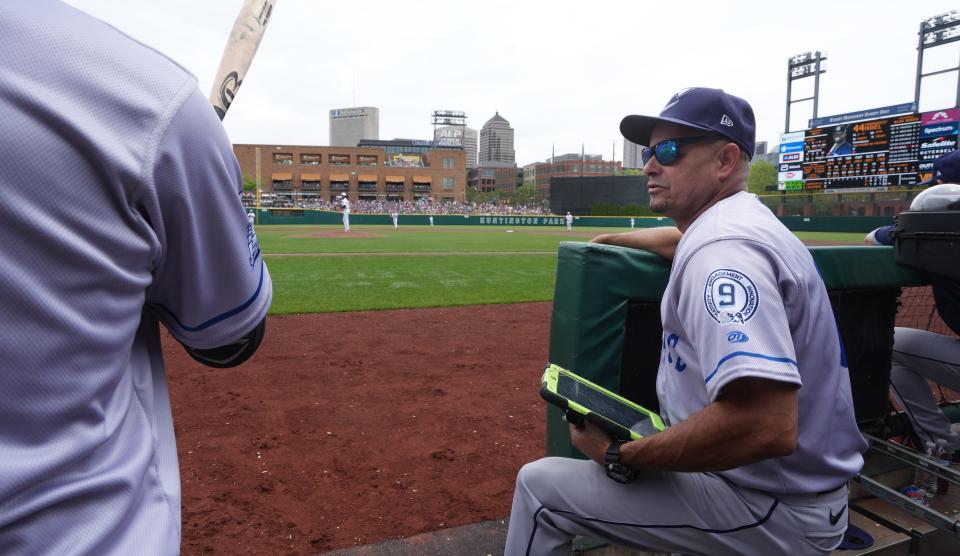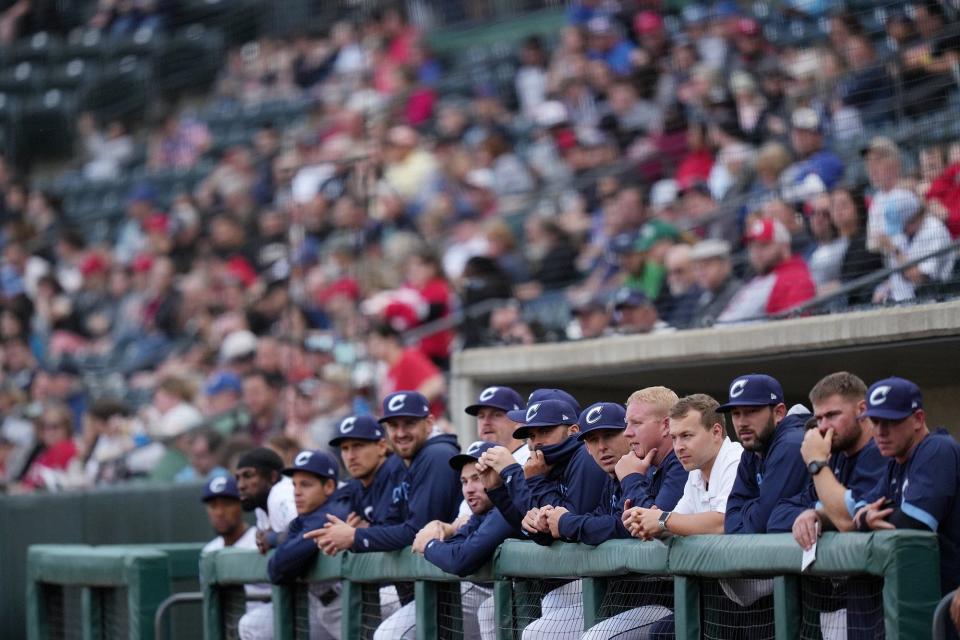When the 1994 Helena Brewers landed in Montana, players were given hotel rooms for three days and told to find living arrangements for the season. Throughout the course of the three days, players gradually moved out of the hotel.
Junior Betances wondered where all his teammates were going.
Three weeks after the squad had initially bunked in the hotel, Betances got a call from the Brewers manager, Dub Kilgo, who was accompanied by the team’s Spanish-speaking hitting coach. They were marking down players’ addresses.
Bewildered, Betances explained to the hitting coach that he was still in the hotel.
When team personnel sent out the initial memo about the hotel being a temporary fixture, they had done so only in English. So Betances, who had moved from the Dominican Republic just months earlier, had no way of understanding it.
“I didn’t know anything about English,” he said.
And just like that, the 21-year-old collecting $600 paychecks was looking at a $2,000 hotel room charge.
Baseball: ‘If I messed up, I messed up. Challenge it’: How the Clippers, Triple-A baseball use challenges
Betances turned 50 two weeks ago. Now the hitting coach for the Clippers, he lives in small-town Perth Amboy, New Jersey, during the offseason. He is married with three children, aged 17, 15 and 11, all who speak fluent English.
“I love the United States,” he said.
But as one who came to the country without English-speaking experience, Betances had to overcome a plethora of obstacles, both on and off the diamond, in order to chase his professional baseball dream. And while Major League Baseball now provides resources to make the cultural adaptation process smoother, the experiences of some current Clippers players demonstrate that moving to the US without ever having spoken the native tongue isn’t exactly akin to hitting balls off a tee.

Social yips for minor league baseball players
Leaving home often means leaving family and friends behind. Finding new companions without something so elemental as a language in common with others can be challenging.
Betances was the only Latin American player on the 1994 Helena Brewers. The exuberant infielder was able to forge bonds as he started picking up bits of English. But he sometimes wondered if he and his new friends were on the same page.
“It was hard,” he said. “I tried to communicate with them the best I can. I don’t know if they understood me, but I tried.”
Betances spent the last three years of his minor league career in the Cleveland organization, where he connected particularly well with one teammate: now-Toronto Blue Jays general manager Ross Atkins.
“He helped me buy food, and he helped me get to the park, so I made a really good friendship with him,” Betances said.
Clippers catcher Eric Rodríguez came to the US from Puerto Rico in 2016 as an 18-year-old with a particularly tough task: Navigate college life in Alabama without knowing English.
It wasn’t until his sophomore year at Wallace Community College that Rodríguez really started to grasp the language. That left him in a constant state of isolation as a freshman, particularly during the fall semester.
“It was a lonely year,” he said. “Every day, it was just from school to the apartment, because I didn’t want to talk to anybody.”
Concession stand diets for minor league baseball players
For many world-class athletes in the US, junk food is an occasional indulgence—a release from rigid nutritional habits. For many world-class athletes in the US who don’t speak English, junk food can be the only option.
Betances relied on cheese and pepperoni pizza for much of his first season in Helena. His other dietary staples were the leftover hot dogs and hamburgers from the ballpark after games. He could only ask for foods that he knew by name.
However much American food he was consuming evidently paled in comparison to his caloric intake back home.
“My mom, when I came back to the Dominican Republic (for the offseason), was crying because I lost a lot of weight.”
Forty pounds, to be precise.

The involuntary starvation was not only unpleasant, but also detrimental to his performance. With so much muscle off his frame, Betances could not muster the swinging power he once had. The baseball started to feel more “like a basketball,” he said.
In a more recent time, now-Clippers pitcher Luis Oviedo saw his palette restricted by language barrier. Native to Barquisimeto, Venezuela, he arrived in the US at age 16 in 2016. He knew “zero English.”
McDonald’s became the go-to for Oviedo, 24, who appeared in 22 games for the Pittsburgh Pirates in 2021. At the popular fast-food chain, he could order foods without knowing their names. He just had to point at numbered menu items.
Disconnect on the diamond?
Mound visits. Dugout chatter. Pump-up speeches during the seventh-inning stretch.
Player-manager interactions are vital to a ballclub’s success. What happens when there’s a language barrier?
The Helena Braves’ Spanish-speaking hitting coach facilitated all communication between Betances and manager Dub Kilgo. If not for the lone bilingual on the staff, perhaps it would have been months before Betances was told that the Rookie League club was not equipped to fund a season’s worth of hotel fees.
Today, at the major league level, all teams have Spanish-speaking interpreters. That’s not the case in the minor leagues, but an increased presence of Latin American baseball personnel on US soil means that players who don’t speak English are more likely to find teammates and coaches who can serve as translators. Just 18% of players on MLB rosters were Latino in 1994, according to data from The Institute for Diversity and Ethics in Sport. That proportion had risen to 28.5% by 2016, the year Rodríguez and Oviedo came to the US
Since Rodríguez and Betances both know how it feels to be one of the guys in the clubhouse who doesn’t speak English, they have become helpers themselves. Rodríguez facilitates communication between his pitchers and coaches. Betances finds fulfillment in guiding young players through some of the same challenges he has already conquered.
“I can help them, not because that is my job, but because I love to do it,” Betances said.
Learning curve for baseball players
Betances relied heavily on his teammates to teach him English throughout his six-year playing career. Now, players have more resources. Under the Major League Baseball Players Association’s latest collective bargaining agreement, which represents major and minor leaguers, clubs must provide English courses to players who request them.
Oviedo is satisfied with the training his organization has provided.
“The Cleveland Guardians have really good teachers,” he said. “Everything I know about English was from (the organization).”
Players can also ask to take Spanish classes under the new collective bargaining agreement, meaning that in the future more people in clubhouses may be able to communicate with teammates who are still grasping English.
Betances was one of many minor leaguers over the years who enhanced their English while living with a host family. However, under the new collective bargaining agreement, host families have been prohibited, since almost all minor leaguers receive guaranteed housing.
Despite the linguistic help that host families provided for players who were new to English, the new housing agreement is a net positive, Betances said.
“You practice more of the language, and you learn a lot about the culture (living with a host family),” he said. “But when you live on your own, you do whatever you want, you make the food whatever you want and you don’t have to pay anything.”
Rodríguez took a simple yet effective approach to enhancing his English: Speak it whenever possible.

“I would just start talking with people randomly to practice,” he said.
Rodríguez, like any US resident from another country, came here for a reason. But life got much more fulfilling when he got the nation’s native language down.
“It’s an awesome country,” he said. “I’ve always been happy. It’s just that now I’m more comfortable.”
This article originally appeared on The Columbus Dispatch: Current Clippers had to settle in the United States without English